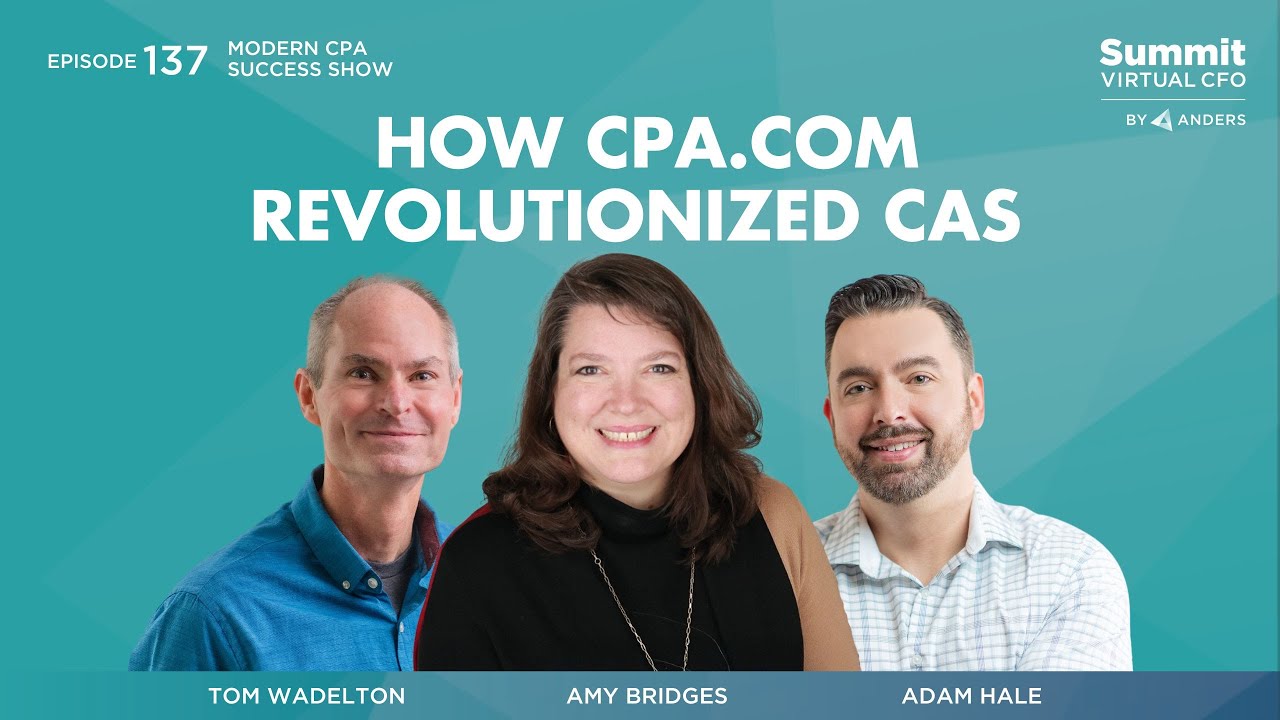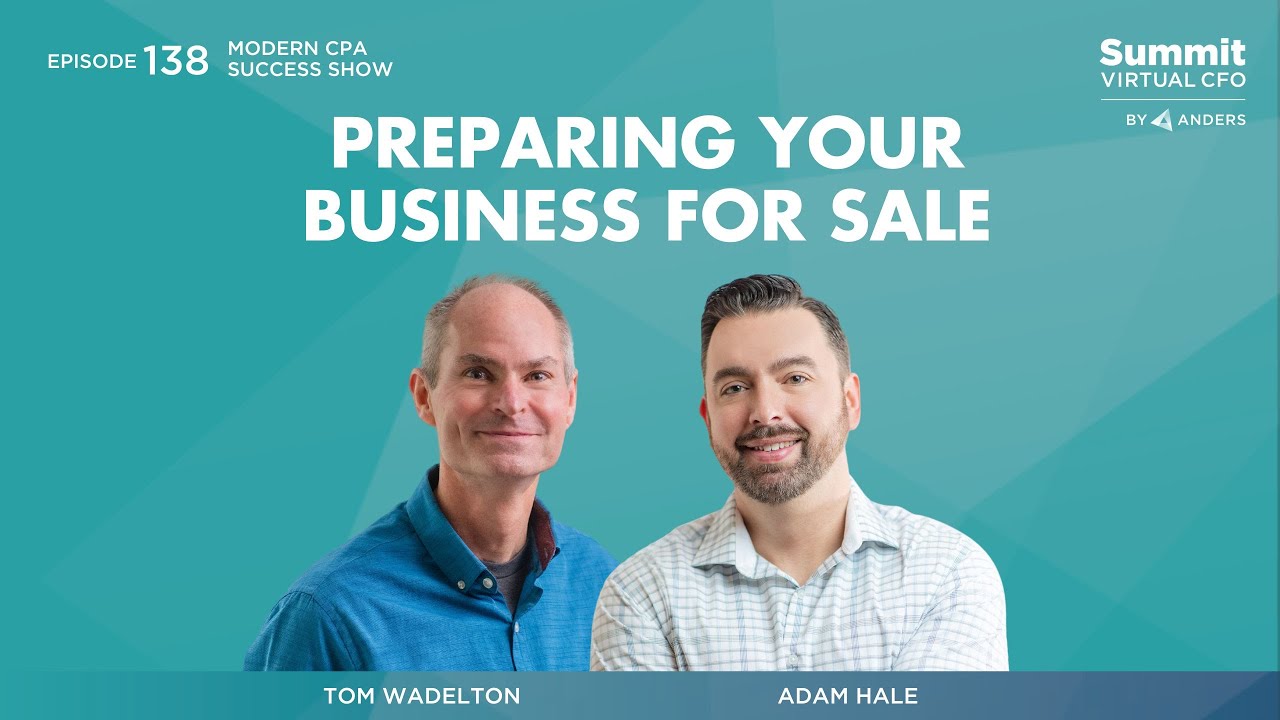At Summit CPA, we believe it’s vital for both our leadership team and our employees to read literature that can illuminate new ways to create and employ beneficial business practices. While our team of CFOs has read many books over the years, three, in particular, stand out. These are the three books that we recommend to your team that can streamline operations, build your business, and help you become better CFOs.

The E-Myth Revisited
Written by Michael E. Gerber, The E-Myth Revisited does a great job of breaking down what you need to do to scale your business by developing processes that can be repeated by any qualified employee. As a firm, we chose to create standard procedures around client work in part because this book spoke directly to how doing so would allow our team to work more efficiently and adapt quickly to new roles. While empowering people through this element of process management, we were also able to apply this kind of control to our advisory roles, which ultimately helped us scale our business.
The book also identifies the types of employees who fit the mold and categorizes them as entrepreneurs, managers, or technicians. In theory, entrepreneurs are staff members who are always looking to the future of the business. Meanwhile, managers are those who apply lessons from the past to manage situations in the present, and technicians serve as current “doers.” All three types of people are extremely important to have on your team. Labeling employees in this way can help those in leadership positions identify which types of people should occupy specific roles within the organization. It’s also beneficial to see if the owner of said business represents some aspect of all three roles. If not, leaning on the team they have in place to fill in those gaps becomes paramount.
Getting Things Done
Another book about the importance of creating and sticking to processes when looking to grow your firm, Getting Things Done written by author David Allen. At Summit CPA, we’ve incorporated the teachings of this book into our firm’s operations by having our team of CFOs read it as a collective, discuss it, then follow the steps listed in the book faithfully. Our team of CFOs still meets regularly to complete the following actions as stated in the book:
- Clearing out their inbox. Our team spends part of their weekly meeting talking about how many emails they currently have in their inbox and discussing ways to reduce the amount by prioritizing this task. This action lends itself to fostering excellent internal and external communication by having employees respond to others in a timely fashion.
- Going over their weekly review. The weekly review is a name given to the action of an employee sitting down before the week starts and looking through their calendar to make a to-do list of things to accomplish during the week and reorganize those tasks as needed. At the meeting, everyone is asked on a scale of one to three how their weekly review is going, which is another way of asking how many tasks on their to-do list were they able to accomplish. This type of preparation helps employees complete relevant tasks and determine which tasks to prioritize.
- Holding others accountable. The meeting itself is a way to hold employees accountable for getting their work done in a timely fashion and ensuring that more menial tasks don’t slip through the cracks. Overall, the meeting helps our team adhere to deadlines and maintain excellent communication.
The Four Disciplines of Execution
Written by authors Chris McChesney and Sean Covey, The Four Disciplines of Execution outlines ways in which businesses can better serve their client base by following a series of steps. Our group of Virtual CFOs continues to serve clients by following these steps:
- Determining the client’s Wildly Important Goal (WIG). This step indicates that service-based businesses should focus on the one, overarching goal they need to accomplish upon being hired. This particular goal is the one that, when accomplished, allows everything else to work itself out or fall into place.
- Acting on measures that champion your goal. In this instance, ensuring your client achieves their WIG means that specific measures should be put into place to get there. The book discusses this fact in terms of lead and lag indicators. Lead measures are the steps it takes to achieve a goal, which lags measures are the results of those lead measures. At Summit CPA, we discuss indicators like these frequently given our work with forecasting.
- Putting together a scoreboard. The concept here is to figure out how to measure the progress of the work being done to achieve the WIG. At Summit CPA, we do this by putting together a scoreboard that discusses the lead indicators and how to report on them. From there, we figure out a way to get the client’s team actively working toward that goal.
- Figuring out a cadence of accountability. The final step involves determining how to hold a client accountable to the plan put in place to accomplish their WIG. At our firm, we meet with clients weekly to check in and hold them responsible for following the devised strategy.
We recommend reading regularly to come across new ideas and open your mind to innovative ways in which you can successfully scale your business. From reading a paperback or hardcover to listening to the audio version of a book on your way to work, there are many ways to consume the information you may need to better your team’s performance and take your business to the next level.
Summit CPA Group is a fully distributed accounting firm and leading provider of Virtual CFO Services in North America. In addition to providing VCFO coaching, CPA firm augmentation, Summit CPA Group is building a community of CPA firm owners who want to learn how to provide or enhance their existing VCFO service offerings. The CFO Community includes free monthly CPE webinars, a Slack network, The Virtual CFO Playbook – a course dedicated to teaching CPA firm owners how to build and scale Virtual CFO services, and more. Join the community today and start getting the support you need to grow your firm!
.png?width=120&height=77&name=Summit-Virtual-CFO_color_rgb%20(1).png)













